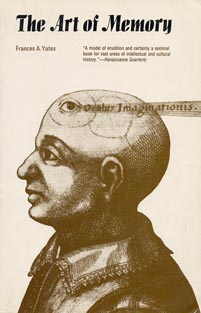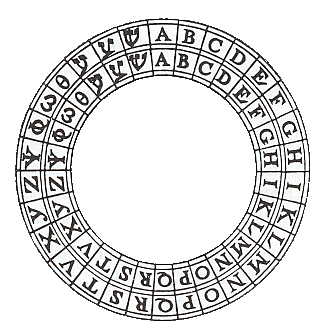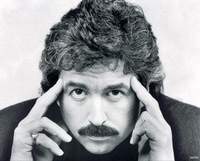Memories Aren't Made Of This (Dominic O'Brien, Steven Rose, The Memory Men, ICA, London, 31 January, 2003)
The recent Memory Men event at the ICA showed that the Ars Memoria is alive and well - as evidenced by the elephantine memory of participant Dominic O'Brien. But could the presence of philosopher of mind Steven Rose turn this into more than just an amusing sideshow?
In her book The Art of Memory , Frances Yates traces the history of what she calls "the classical art of memory", an ancient mnemonic system recorded in the writings of Cicero, Quintilian, and an anonymous text now known as the Ad Herenium, and which Yates proposes as its main means of transmission from ancient times to the Renaissance.

Yates is referring to an artificial memory system, of which she says that there "is no doubt that this method will work for anyone who is prepared to labour seriously at these mnemonic gymnastics." [1] It involves marking in the memory a series of places around a building or other structure with which the would-be "rememberer" is already familiar, then placing within this mental maquette a series of objects at selected points along a projected walk through the imagined site. One links each object to a particular piece of information one wishes to later recall, and, once familiar with the arrangement, it is a simple matter to mentally retrace one steps and thus recall with ease complicated chains of words, numbers or ideas.

Memory Wheels - From Giordano Bruno, De Umbris idearum, 1582 [reproduced in Yates, p. 209, see below]
Dominic O'Brien is a practitioner of this art, and in The Memory Men not only demonstrated his admittedly impressive ability to remember an extremely large number of things, in various versions and sequences, but also began to train the audience to do this too. He accurately recalled a 60-figure sequence written on a board by a member of the audience, detailed information from a newspaper, the names of people in the room as supplied from a list of ticket bookings, the dates of birthdays, all the time chatting away about how the method he was using worked and how it required no particular abilities save perseverance and imagination. Whilst this was, in its way, entertaining, what was disappointing about the show was that it was precisely that - a show, a kind of spectacle, as opposed to something more intellectually involved and engaging. As the scientist sharing the platform with O'Brien, Steven Rose, remarked, "this is really Dominic's evening and Dominic's show", though why exactly this was what it was, we were never told.
Advertised as a meeting of a super successful mnemonist and a renowned expert on the human brain, the implication was that the evening would take the form of an extended exchange between these two "memory men". But the basic sequence of events foregrounded the aforementioned technical demonstrations, with only minimal diversions into the theory of how the artificial memory system, and that utilised by the human brain, actually worked. Rose talked of distinct kinds of human memory - procedural, declarative, linear, photographic - but declined to discuss their no doubt intriguing complexities and differences in any depth. Similarly, when the personable but otherwise "corporate" O'Brien spoke of his procedure he kept almost exclusively to technicalities, certainly worth hearing about but hardly the most stimulating aspect of what might well have been a much more intelligent - as opposed to lightly distracting - event. Neither Rose nor O'Brien even mentioned Yates' highly respected research into the history of mnemonics, and the enigmatic "S", a character whose life and apparently limitless natural memory is described in A R Luria's striking study The Mind of a Mnemonist [3], was but fleetingly referenced.

 Dominic O'Brien (left) and Steven Rose (right)
Dominic O'Brien (left) and Steven Rose (right)
The ICA has an image that suggests - tries to suggest - culture, knowledge, education and informed debate, but in The Memory Men the focus was upon mere entertainment, showmanship, audience participation, and a dull but compulsory jocularity one could happily have done without.
[1] Frances Yates, The Art of Memory, Penguin, 1969, p. 19.
[2] A. R. Luria, The Mind of a Mnemonist, Jonathan Cape, 1969.
Mute Books Orders
For Mute Books distribution contact Anagram Books
contact@anagrambooks.com
For online purchases visit anagrambooks.com






